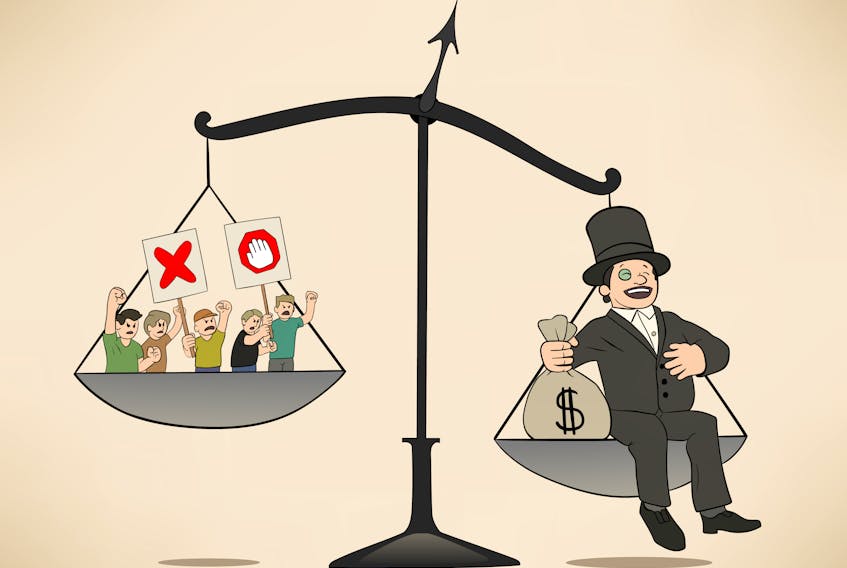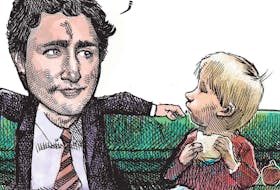
In the United States, a class war is raging. It gains momentum daily.
Billionaires are defensive, seemingly losing ground to a group of firebrand social Democrats who are taking control of the political discourse.
It is a war rooted in staggering income inequality and a broken economic system that has delivered the vast majority of benefits to the few, leaving the many behind.
Consider these headlines in just the past few weeks:
Capitalism in crisis: U.S. billionaires worry about the system that made them rich – April 20, 2019, Washington Post;
Disney heiress calls CEO Bob Iger’s $65.6 million total compensation ‘insane’ – April 22, 2019, CNBC;
The kings of capitalism are finally worried about the growing gap between rich and poor – April 23, 2019, the Guardian’s Broken Capitalism series;
Billionaire JP Morgan chief attacks socialism as ‘a disaster’ – April 4, 2019, The Guardian.
The Washington Post noted: “For the first time in decades, capitalism’s future is a subject of debate among presidential hopefuls and a source of growing angst for America’s business elite … There is a sense that the kind of capitalism that once made America an economic envy is responsible for the growing inequality and anger that is tearing the country apart.”
This new brand of politicians, like Alexandria Ocasio-Cortez and some veterans like Elizabeth Warren and Bernie Sanders are changing the political conversation. Instead of merely peddling hope, they are offering up real policy solutions rooted in class politics.
Instead of running from the class war, they are in the trenches, fighting it out. Not afraid of bold ideas grounded in social justice. Not afraid to take on decades of conventional wisdom about taxes, the role of government, and out-of-control capitalism. Not afraid to organize.
Identity politics have not so much taken a back seat, but rather are woven into the fundamental conflict of who benefits from the economy and who doesn’t.
The Canadian left might take note because there is a class war in Canada, too.
We have our own headlines:
Canadian Revenue Agency writes off $133 million owed by one taxpayer – April 22, 2019, CBC News;
Liberals slammed for $12-million retrofit to Loblaws fridges – April 9, 2019.
Canada’s Big 5 bank CEOs pay rises 6.5% to $54M in 2018 – March 13, 2019, CBC News;
Canada’s top CEOs earn 200 times an average worker’s salary – January 2, 2019, CBC News.
Inequality may not be as staggering as in the United States, but we have the same underlying problem: unfairness. Instead of waging a bold campaign to address it, we get tentative steps, at best. Incremental change.
In the meantime, we have tied ourselves up in knots over carbon taxes. For the better part of 40 years in this country, the Conservatives and Liberals to varying degrees have argued that taxes are bad. Now after decades of badmouthing taxes, why is anyone surprised at how difficult it is to sell Canadians on carbon pricing.
The carbon tax has become the victim in a class war and the Conservative are winning. There are any number of reasons, including some highlighted in a recent Maclean’s article by Max Fawcett (who worked in the Alberta climate change office between 2017 and 2019).
“Carbon pricing, for all of its economic merits, is a political disaster. It’s time to shift the conversation in a more productive direction before it’s too late,” writes Fawcett.
Here are a few more reasons to add to Fawcett’s list.
Outside of a few pockets in the country, workers have been left out of the climate-change discourse. Their concerns mostly dismissed. The dominant narrative is: workers can just find other jobs; get some retraining.
What do workers understand about this? That they are collateral damage.
Those who deeply recognize that the world needs to address climate change and quickly must find a way to make sure workers are more than superficially part of a climate change action plan.
And speaking of action, where is Canada’s bold green economic plan for the future – one that puts just transition, workers, communities and the environment at its heart?
Without one, the political right will continue to do what they have been doing. They will continue to win or at least win enough.
What often gets forgotten by very smart people when they develop these policies is that workers have been subjected to economic transformations before. They have lived through recessions. They know who pays the price. It isn’t the banker or the CEO. They do.
In a world of uncertainty, they are not hearing anything to counter that fear except more fear about the impact of climate change on them and their jobs.
Perhaps it’s time to realize that saving the planet is also part of the class war and we need to start treating it as such.
Lana Payne is the Atlantic director for Unifor. She can be reached by email at [email protected]. Twitter: @lanampayne Her column returns in two weeks.
Previous column:









